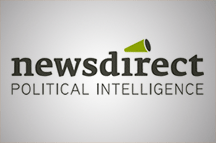 The Scottish Parliament's Standards, Procedures & Public Appointments Committee has published its Stage 1 report on the Lobbying (Scotland) Bill on Tuesday 15th December. This report is on the general principles of the proposed legislation, but with issues highlighted for further scrutiny, reconsideration or amendment at Stage 2.
The Scottish Parliament's Standards, Procedures & Public Appointments Committee has published its Stage 1 report on the Lobbying (Scotland) Bill on Tuesday 15th December. This report is on the general principles of the proposed legislation, but with issues highlighted for further scrutiny, reconsideration or amendment at Stage 2.
As expected, the Committee has concluded that the Scottish Government's curious proposal to only require registration of face-to-face communication is “an artificial distinction” and is recommending an amendment to broaden this to include communication of any kind. Aware that this will substantially increase the volume of information that requires to be registered, the Committee have suggested that perhaps some ruling enabling the disregard of "repetitive information" could be introduced, to lighten the burden.
The Committee strongly agrees with the principle that individuals must be able to freely engage on their own behalf or in an unpaid capacity on behalf of an organisation. Therefore, the report agrees that it should only be "necessary to register the details of lobbying if the lobbyist is paid – either as a professional lobbyist or as part of their job." We would expect some further clarification on this during Stage 2, essentially on the definition of voluntary work and benefits in kind. For example, when thinking about public affairs professionals who regularly and conscientiously take up unpaid board, volunteer or advisory roles. Could an individual wear a paid lobbyist hat and a voluntary hat at different times of the week, without there being any intention to mislead? If an individual's salary is being paid by someone other than the letterheaded-beneficiary of the lobbying (for example when membership organisations draw resource from their network), is that registrable - or not?
 The report proposes that Stage 2 amendments be brought forward to broaden the definition of regulated lobbying to include communication "with public officials", but doesn't make specific suggestions as to the breadth of this. It seems likely that this might include senior civil servants and special advisers, but may also include senior staff of Non-departmental Public Bodies (NDPBs) as cited in the report (para 51) in relation to Irish lobbying regulations. The report also asks the Minister to consider a clear and stated exemption for trade union negotiations, as suggested by the BMA and others.
The report proposes that Stage 2 amendments be brought forward to broaden the definition of regulated lobbying to include communication "with public officials", but doesn't make specific suggestions as to the breadth of this. It seems likely that this might include senior civil servants and special advisers, but may also include senior staff of Non-departmental Public Bodies (NDPBs) as cited in the report (para 51) in relation to Irish lobbying regulations. The report also asks the Minister to consider a clear and stated exemption for trade union negotiations, as suggested by the BMA and others.
During evidence-taking, very clear differences of opinion were aired on the topic of financial transparency. Those in favour argue that declaring levels of spending on lobbying is essential to the public interest. For others it is a step too far in terms of the burden imposed on organisations. One option for this would to be to require registration of spending within bandings (as originally proposed by Neil Findlay MSP). The Committee has sidestepped the issue (for now) by simply noting that "it will be within the Parliament‘s powers (under section 15, Power to specify requirements about the register) to require registered organisations to disclose their level of expenditure on lobbying." It would appear that those advocating that financial disclosure is essential to the public interest have some more post-election lobbying to do...
Finally, the Committee calls for a review of the exemption of meetings not initiated by a lobbyist, following some fairly genuine concerns about workability.
This Bill has had a unique journey into legislation. Originally a Members' Bill, it was adopted by the Scottish Government and put firmly on the backburner. Ministers then invited the Standards Committee to undertake a pre-legislative inquiry on the topic. In presenting his draft, the Minister was at pains to suggest that he was taking his lead from the Committee and putting into practice some of their findings. It would appear that the Committee don't share his interpretation of certain key aspects and, while accepting the key principles of the Bill, they have, in their own polite way, sent the Minister homeward, to think again...














